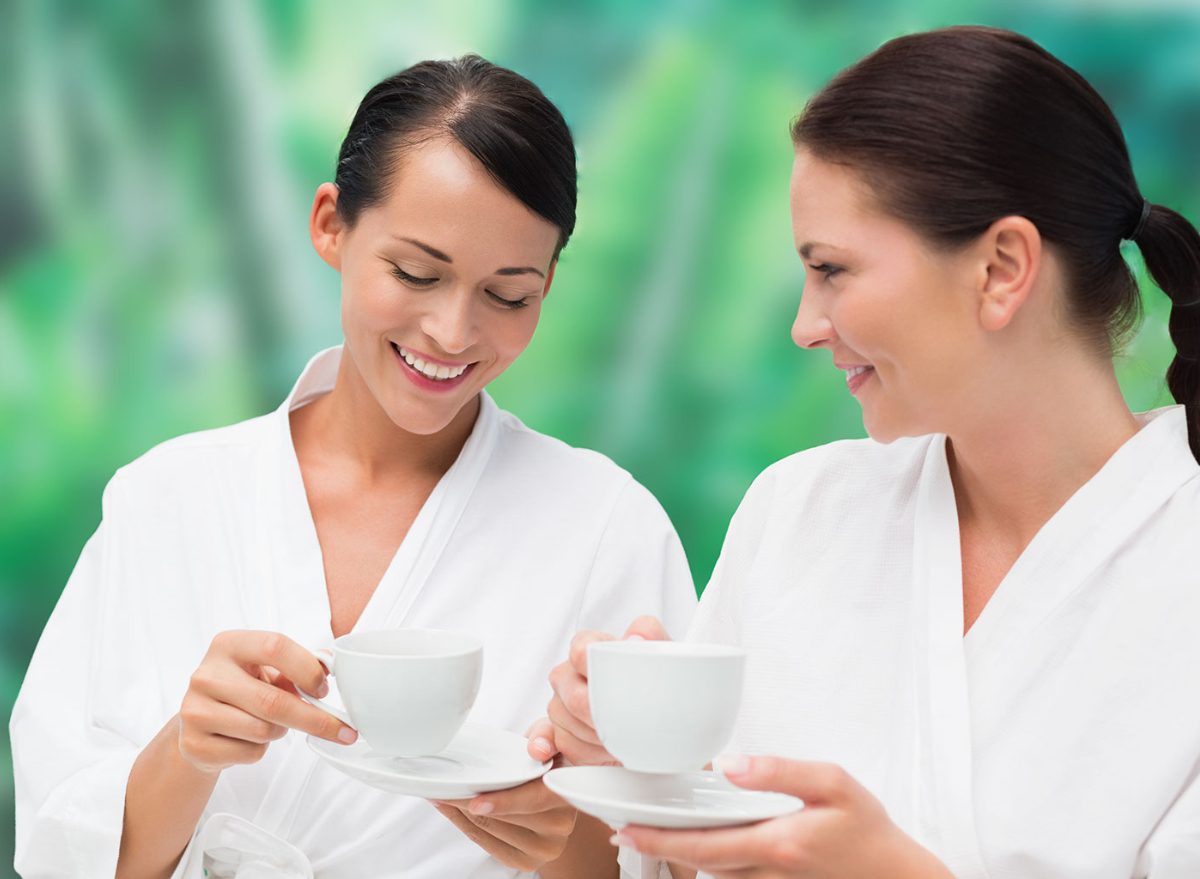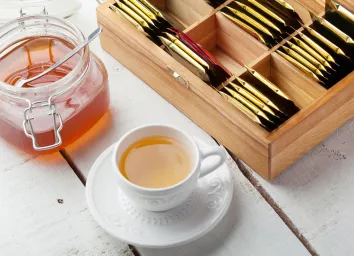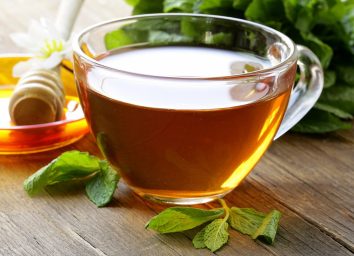This Tea Makes Your Hair Healthier, Science Says

You already know that drinking tea has amazing health benefits, like lowering blood pressure, boosting metabolism, and sharpening brain function. (Turns out it also makes a great bath soak.) Now, a new report reveals how drenching your hair in black tea may deliver faster growth, greater shine, and richer color… and might even make gray hairs vanish.
If you love developing simple, all-natural beauty treatments, this may be your next one to try. Healthline reports that black tea hair rinse is a fascinating method that's been utilized for centuries to fortify hair health. That's thanks to the oxidized leaves of the camellia sinensis plant when they release tannins, which is an antioxidant that neutralizes cell-damaging free radicals.
The same antioxidant effect is said to be healthy for the skin of the scalp, while black tea's caffeine content is said to potentially stimulate hair growth. Combined, these attributes might make healthy hair grow faster, while the caffeine is also said to block the activation of a hormone that can cause hair loss, which can occur in both men and women due to the shifts in hormone levels that occur with age.
Healthline explains that a study on human skin samples demonstrated how applying caffeine and testosterone increased keratin (protein) production and lengthened the hair-producing phase of hair growth. Meanwhile, another study resulted in a similar outcome when a topical liquid caffeine solution was applied (though that study was sponsored by the solution's manufacturer).
And, a black tea hair rinse may hydrate the hair to promote more shine and may even infuse gray hairs with temporary color. However, it's worth mentioning that the black tea rinse may also cause some drying to the hair or scalp, especially if it's left to sit too long (an hour, max)—but, says licensed esthetician Kaye Bennett, soaking the tea in water prior to application lessens any possible concerns. Plus, Bennett says, "Applying tea bags directly over the eyes for styes and puffiness has been recommended for ages. The scalp is much tougher skin than the eyes."
Note while a black tea hair rinse probably isn't an ideal method for anyone with lighter-colored hair… if you're curious to try a black tea hair rinse at home, here are the steps:
- Consider starting with a low black tea amount, like a single tea bag, to ensure the amount isn't too aggressive to start.
- Boil water just as you would for regular tea, and steep the tea in it. Then, allow it to cool to a temperature that's comfortable to the skin's touch.
- The day before you want to try the black tea rinse on your hair, test a small area on the hand or the arm to ensure there's no reaction. Allow plenty of time for the tea tonic to sit, even as much as an hour. Rinse the sample patch and allow a day to ensure you're in the clear.
- The next day, go through the same preparations—and make sure the tea has cooled plenty!—before you situate yourself over a bathtub or sink and pour the tea over your head. (Be sure to have an old towel nearby to wipe up any spills, since black tea can stain some surfaces.)
- Allow the tea to sit anywhere from two minutes to an hour (but do keep in mind that the longer you leave it, the more skin- and hair-drying effect it can have).
- Rinse thoroughly, and consider waiting a day or two to shampoo to avoid any possible interactions between the tea and your hair cleansing or conditioning products.
Get daily wellness news you can use from the Eat This, Not That! newsletter. Also keep reading:








